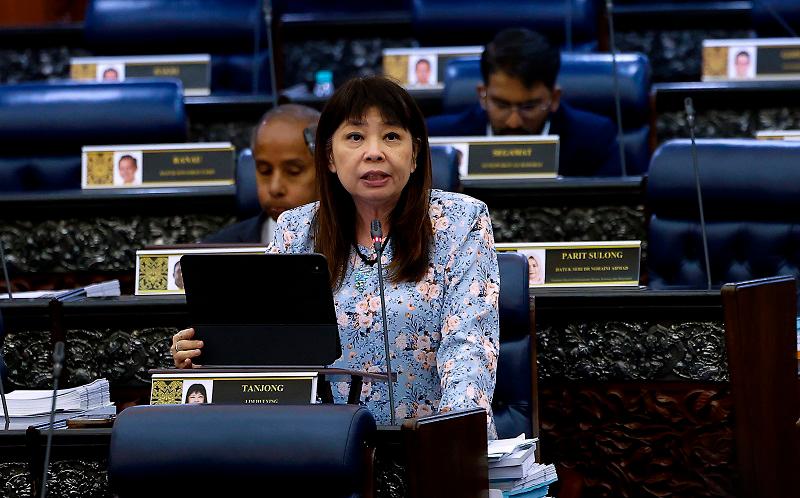KUALA LUMPUR: The proposal for the implementation of subsidies for the development of basic medical and health insurance and takaful (MHIT) products requires in-depth studies, including the long term impact on overall healthcare costs, said Deputy Finance Minister Lim Hui Ying.
She added that it must also take into account factors like the government’s financial situation, protection benefits, healthcare costs and the long term sustainability of the policy.
“The development of basic MHIT products is important to ensure continued access to private healthcare services. The sustainability of these basic MHIT products will also be enhanced through stronger regulatory measures to curb medical cost inflation,“ Lim told parliament today.
She was responding to a motion by Chiew Choon Man (PH-Miri) who proposed an affordable medical insurance scheme to reduce reliance on the Employees Provident Fund (EPF).
As of Dec 31, 2024, a total of 153,618 EPF members have utilised the facility to withdraw savings from the Sejahtera Account (formerly Account 2) to purchase life insurance and critical illness insurance under the i-Lindung programme. The total amount withdrawn was RM51 million since the programme was introduced in July 2022 until December 2024.
Commenting on the basic MHIT products, Lim said they would be standardised to make it easier for users to understand the basic features of the products, coverage benefits, and product limits. This will also help users compare it with other products and make informed financial decisions.
“Participation on a sufficient scale for these basic MHIT products is important to ensure the sustainability of these products. The more widespread and diverse the participation of policyholders in these basic MHIT products, the greater the risk pooling effect. This will directly improve the affordability and sustainability of the basic MHIT products,“ said the deputy minister.
With more diverse participation, particularly with a balanced ratio between younger and older groups, the premium setting for these basic MHIT products will be more stable in the long term. Therefore, Lim said it is important for the government to leverage the i-Lindung programme to build a solid group of early policyholders among EPF members.
In addition, access to basic MHIT products can be extended to government-linked companies (GLCs) and small and medium enterprises (SMEs) to include more employees.
“Therefore, all stakeholders, including the EPF, Bank Negara Malaysia, the Ministry of Health, the Ministry of Finance, private hospitals, insurers, and takaful operators will continue to work together to find effective long term solutions, such as implementing the diagnosis-related group (DRG) payment model and increasing transparency in medical cost pricing,“ she added.









